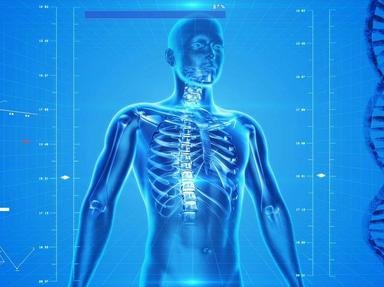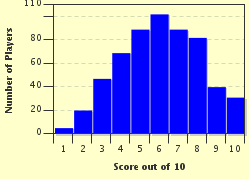Quiz Answer Key and Fun Facts
1. If you take a minute to do this quiz, your heart beats approximately 70 times. Heart rate varies with age and fitness level.
Which of these will usually have the highest resting heart rate?
2. In the minute it could take you to do this quiz, your body makes about 300 million new red blood cells.
Where are new red blood cells made?
3. Puzzling over this quiz for sixty seconds would involve lots of messages travelling along nerve axons at a speed which could reach 7 kilometres (about 5 miles) a minute.
Which of these is NOT a part of a nerve cell?
4. You may be sitting down for a minute to take this quiz but your blood is continuing to flow around your body.
In which of these blood vessels does blood flow the fastest?
5. Even at rest, your body needs energy. You convert about 4 kJ (kiloJoules or 1 kcal) of food energy every minute. Which of these foods provides most energy gram for gram?
6. In the sixty seconds you could spend on this quiz, the blood passing through your lungs has been absorbing about 200 ml of oxygen.
What is the name of structures where gas exchange takes place?
7. If you happened to cough in the minute you have been taking this quiz, the expelled air might have reached a top speed of 1700 metres a minute (approximately 60 miles per hour).
Which of these gases in the air is not involved in cellular respiration?
8. While you have been taking this quiz, your organs have been using energy. The brain uses about six times as much energy as the heart.
9. In the minute you have been doing this quiz, your body has been removing (excreting) unwanted and waste materials.
Which of these organs is NOT an organ of excretion?
10. Over the past minute, parts of your body have been increasing in length. Which of these parts of the body grew the most?
Source: Author
bucknallbabe
This quiz was reviewed by FunTrivia editor
crisw before going online.
Any errors found in FunTrivia content are routinely corrected through our feedback system.

